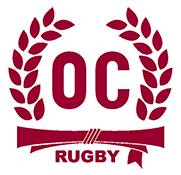John Ovenden
Looking at Life
From the Eastern Suburbs Weekender of June 2000 p16
My heart went out recently to the gallant band of veteran Over 40's rugby union players from Dorset in the South of England, who suddenly found themselves a major draw card on their end of season tour of Romania.
They had arranged to play a fellow bunch of veterans in Bucharest, only to discover thousands of people lining the touchlines, with TV cameras recording their every move.
Since their only moves involved coughing and spluttering from their pre-match build up in the bar of a local hotel the night before, only finishing at 4am, a small matter of seven hours before kick-off, their predicament can be imagined with some sympathy.
For facing them were a top Romanian club's best 15, all super fit professionals in their early 20's and including nine internationals, believing they were about to take on one of England's best club sides. Clearly, in arranging the fixture, something had gone terribly wrong with cross European translation. The word 'veteran' for a start.
Still, the Dorchester Gladiators stuck purposefully to their task before become purposefully unstuck to the tune of 61 v 17.
Afterwards, their captain said that the sight of their opponents running around before the game had even begun had terrified his team.
"We're just a social side", he said. "The only training some of us do is catching the express train to and from the ground on match days. When we tried to convince them we weren't very good, they thought we were just trying to wind them up!"
My sympathy for their plight is not merely because I was born hundreds of years ago in the adjoining country, but because I myself used to identify with their predicament whenever I turned out regularly, although many would say 'irregularly' for Old Collegians here in Adelaide.
Although I, like my team mates, were in my early 20's, we were billed as veterans, even then.
This was, I soon concluded, because we preferred to do our training after matches in splendid surroundings at parties in the homes of all the players in turn, including Government House, where one of His Excellency's ADC's lived at the time.
Many a spectacular new tactic was devised, practised and perfected in the kitchens, bathrooms, corridors, swimming pools and flowerbeds dotted around Adelaide.
Furthermore, if His Excellency had drawn back his curtains in the small hours of one particular morning, he would have been treated to the sight of 16 gentlemen in various stages of inebriation, practising their scrummaging techniques on the lawns in front of him.
However, the difference between the Dorchester Gladiators and us was all in tactics. For a start, our ground had a huge downhill slope, akin to the South Eastern Freeway.
Here we always made sure we played uphill for the first half, holding up play as often as possible by booting the ball into the gardens of those unfortunate enough to overlook the pitch. Then we blitzed the opposition down the slope in the second half, mainly through the use of our 'secret weapon'.
'Samuel' was my cocker spaniel. He was not only our team mascot, but was actually registered as a player with the club, even coming on as a substitute on one occasion. This was because it was felt that Samuel's contribution to our game would be vastly superior to the gentleman who happened to be on the pitch at the time.
Samuel's 'piece de resistance' was causing havoc in the scrums. This he did by licking the faces of those straining and grunting against each other three feet above the ground, snapping at anyone who dared to pick up the ball, and cocking his leg up against the ball, whenever he deemed the game had become boring.
Not surprisingly, no one wanted to play with the ball, or indeed with Samuel, after that.
As a result, on one memorable occasion, he actually dribbled the ball up to the try line all by himself and scored to the bewilderment of everyone present. This included the person whose job it was to phone through our results to the Sunday paper, who said he really couldn't tell them that a dog had been the architect of such a famous victory. But it was true, as those of us who wore gloves and roared down the hill to victory in the second half went on to prove.
Now, if only the Gladiators had had a pack of eight dogs, preferably wild, think how different their result might have been in Bucharest.

